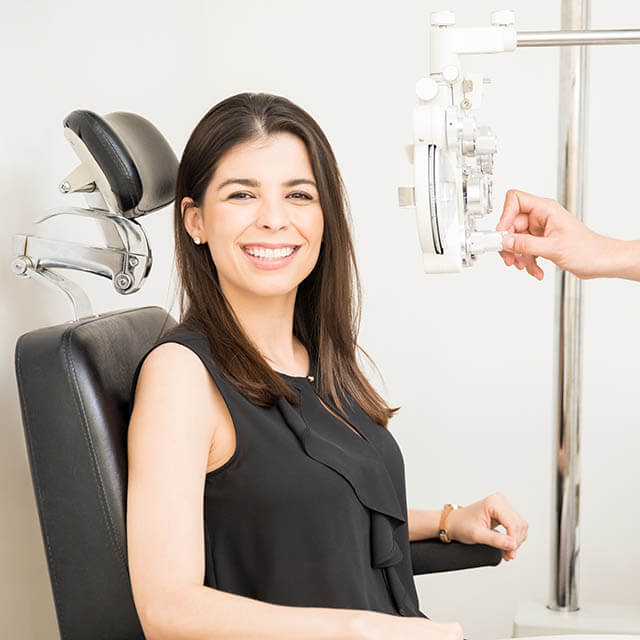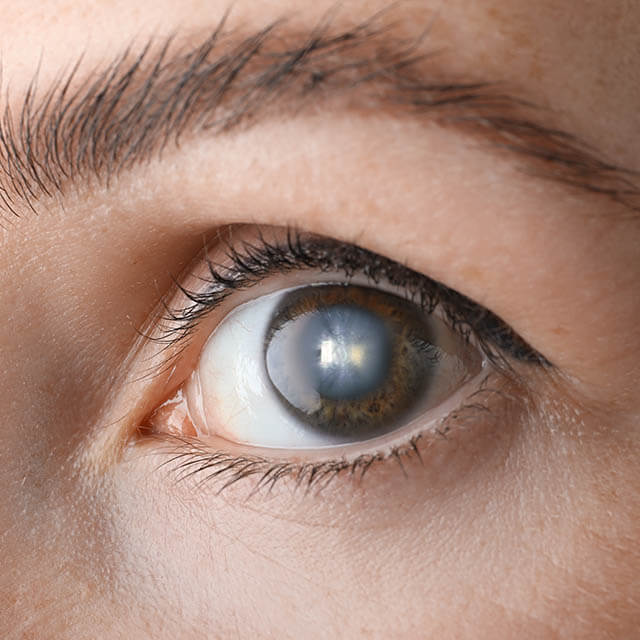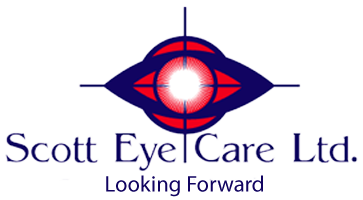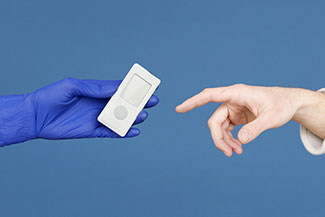Eye Disease Management
Is your vision blurred or cloudy?
Seeing dark spaces in the center of your vision?
You might have an eye disease.
Contact us for effective treatment and experience a heightened quality of life.
Eye Disease Diagnosis and Treatment

Your eyes keep changing with every year that goes by, and this affects vision and eye health.
The earlier the diagnosis of any eye condition, the better your chances for successful treatment.
We can detect these changes and identify eye conditions or diseases early enough to treat and prevent vision loss.
Whether you have diabetic retinopathy, glaucoma, cataracts, or macular degeneration, we’re here to help you maintain the best vision and eye health possible.
Eye Disease Treatments
We diagnose, manage and treat diseases like diabetic retinopathy, cataracts, glaucoma and macular degeneration.
The earlier the diagnosis, the better your chances for successful treatment.
What is Diabetic Retinopathy and How Can It Be Treated?
Diabetic retinopathy occurs when the retina's tiny blood vessels weaken and inflate as a result of high blood sugar levels. As the blood vessels grow, they bleed—causing severe vision loss, and in extreme cases even blindness.
The early and intermediate phases of this disease typically show no symptoms or warning signs. However, as the macula (central part of the retina) becomes inflamed and the disease progresses, discomfort or blurred vision may develop.
Note that diabetic retinopathy can be treated before any vision loss occurs. Treatment and management options include:
- Medication
- Anti-VEGF or steroid injections
- Laser surgery
- Vitrectomy
My son A.S. had three extremely traumatic events happen to him starting in August. These episodes caused Severe PTSD. I tried EVERYTHING. I tried hiring an Autism specialist, and I tried taking my son to several doctors. I even tried OT therapy. Nothing was working! My son was terrified to stay home by himself. He dropped out of college because he was having anxiety attacks daily! Dr. Chula told me to try Multisensory Integration Therapy (Sensory Chair). I had tried everything and thought, what do I have to lose now? We have been going like this for 3 months. I couldn't even take showers with the door shut because my son was terrified something was going to happen to him while I had the door shut. Our whole lives were flipped upside down.
A.S. started the Sensory Chair. At first, I saw no change. Chula kept cheering us on, and I was losing hope at first. But I kept taking A.S. to therapy. Then she sent us home with a series of penlights. I noticed on day 3 that my son was talking more. For 3 months, I could barely get any communication from him. I didn't know if he would have to be hospitalized or what I should do. I am a single mom, and I do this alone.
On day 4, I started noticing that Andrew wanted to go out and do everyday things. A.S. used to LOVE going bowling and doing fun things. But he was terrified of leaving the house because he didn't know if something would happen. Now, he wanted to go out and do things. My family didn't believe me at first with this Sensory Chair Therapy. They looked at me like I was crazy! But on Thanksgiving day, they were seeing old A.S. back! They said, "Oh my goodness, Lisa, the therapy does work!"
I had been unable to go to the grocery store and considered hiring an in-home service. But Chula therapy saved our lives! He stayed home for 4 days alone and was back to the son I remember. I tried everything else, and I almost didn't try this therapy! I am so glad I did! My son is talking again; he is VERY calm. He is going out places, and now we will head back to college. We will go slowly, but this wasn't an option a month ago. Now, our lives are getting back to normal! My son is so brilliant in math, and he could have missed out on a beautiful future by leaving college, But NOW he is back! Stronger than EVER! My son is staying home and being independent again! He is no longer afraid!
Thank you so much, Dr. Chula, for changing our lives and giving me back my son!
What Is Glaucoma and How Can It Be Treated?
Glaucoma is a group of eye diseases caused by a buildup of pressure within the eye. The longer the pressure builds, the more damage it causes, especially to the optic nerve.
In the absence of medical intervention, the nerve will continually deteriorate, resulting in permanent vision loss or blindness.
While glaucoma cannot be cured, there are several treatments that can help slow down the progression of this disease. These treatments include:
- Eye drops
- Oral medications
- Filtration surgery
- Laser therapy
- Drainage tubes
- Minimally invasive glaucoma surgery (MIGS)


What Are Cataracts and How Can The Disease Be Treated?
A cataract occurs when the clear lens inside our eye becomes cloudy. Cataracts develop slowly and reduce the amount of light that can get through the lens, rendering it difficult to see. Those with cataracts feel as if they’re perpetually looking through a dirty window that cannot be cleaned.
If the cataract is at an advanced stage, your eye doctor will likely recommend cataract surgery, a safe procedure where the cloudy lens is replaced with a new intraocular lens (IOL).
What is Macular Degeneration and
How Can It Be Treated?
Macular degeneration is the deterioration of the central part of the retina, the part of the eye that records the images we see and sends them back to the brain. As the macula deteriorates, the brain receives blurred or distorted images instead of clear and bright images.
There are two types of macular degeneration: dry AMD and wet AMD.
While there is currently no treatment for dry AMD, those with significant vision loss might benefit from taking certain nutritional supplements.
For wet AMD, treatment options include:
- Anti-VEGF Injections
- Photodynamic Therapy (PDT)
- Laser Photocoagulation

Eye Disease Management | FAQ
We believe that a person’s quality of life is profoundly associated with the quality of their vision. Vision problems, whether due to glaucoma, cataracts, macular degeneration or diabetic retinopathy, affect all aspects of one’s life. We at Scott Eye Care can help prevent further vision deterioration and manage your current symptoms.
Schedule a consultation with our optometric team and we’ll help you find the best solution for your condition and lifestyle.






